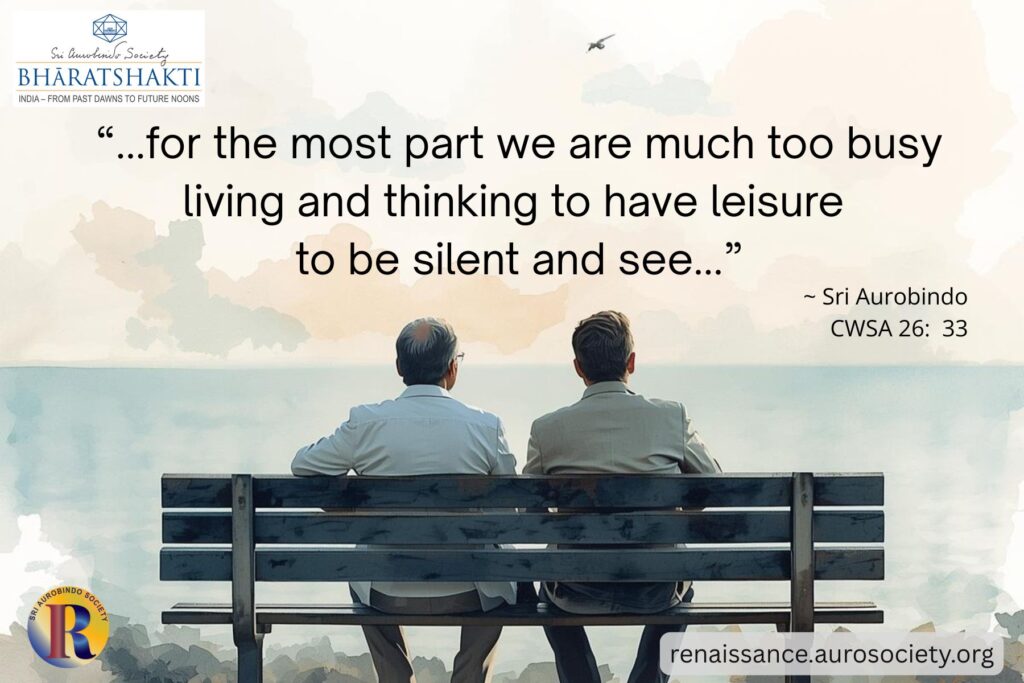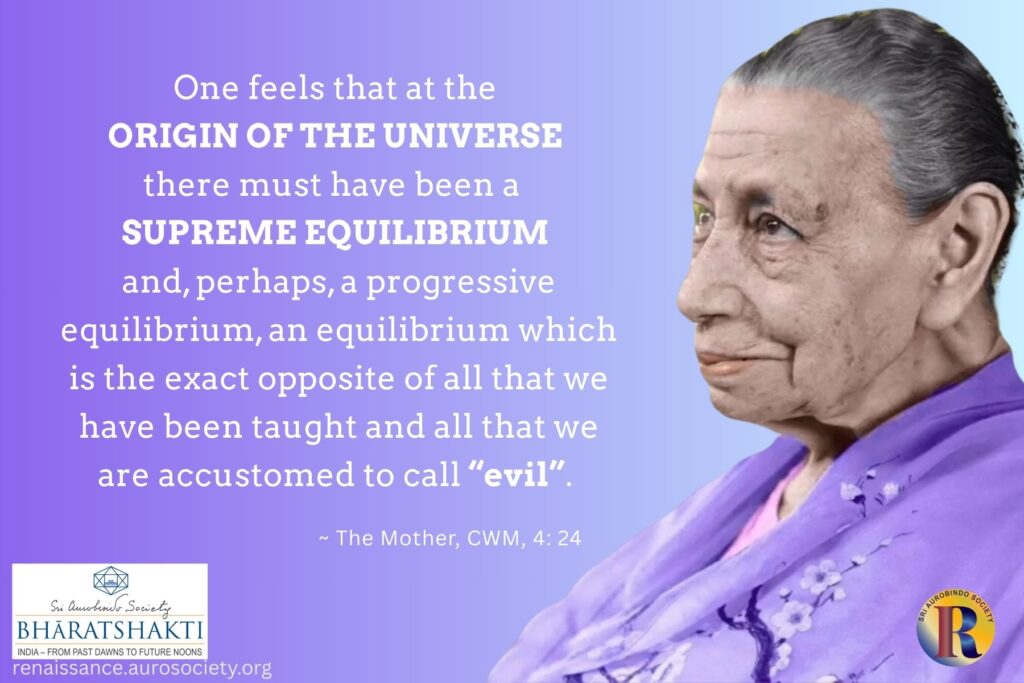Editor’s note: In these selections from Sri Aurobindo’s Letters on Yoga, we are reminded that all work is equal in the eyes of the spirit. No work is big or small, and all work can be done in the spirit of sadhana provided we have the right attitude within. In one letter, Sri Aurobindo explains the true spirit of Gita’s teaching of sarvakarmani using his own example from his revolutionary days.

All Work Equal in the Eyes of the Spirit
Self-dedication does not depend on the particular work you do, but on the spirit in which all work, of whatever kind it may be, is done.
Any work, done well and carefully as a sacrifice to the Divine, without desire or egoism, with equality of mind and calm tranquillity in good or bad fortune, for the sake of the Divine and not for the sake of any personal gain, reward or result, with the consciousness that it is the Divine Power to which all work belongs, is a means of self-dedication through Karma.
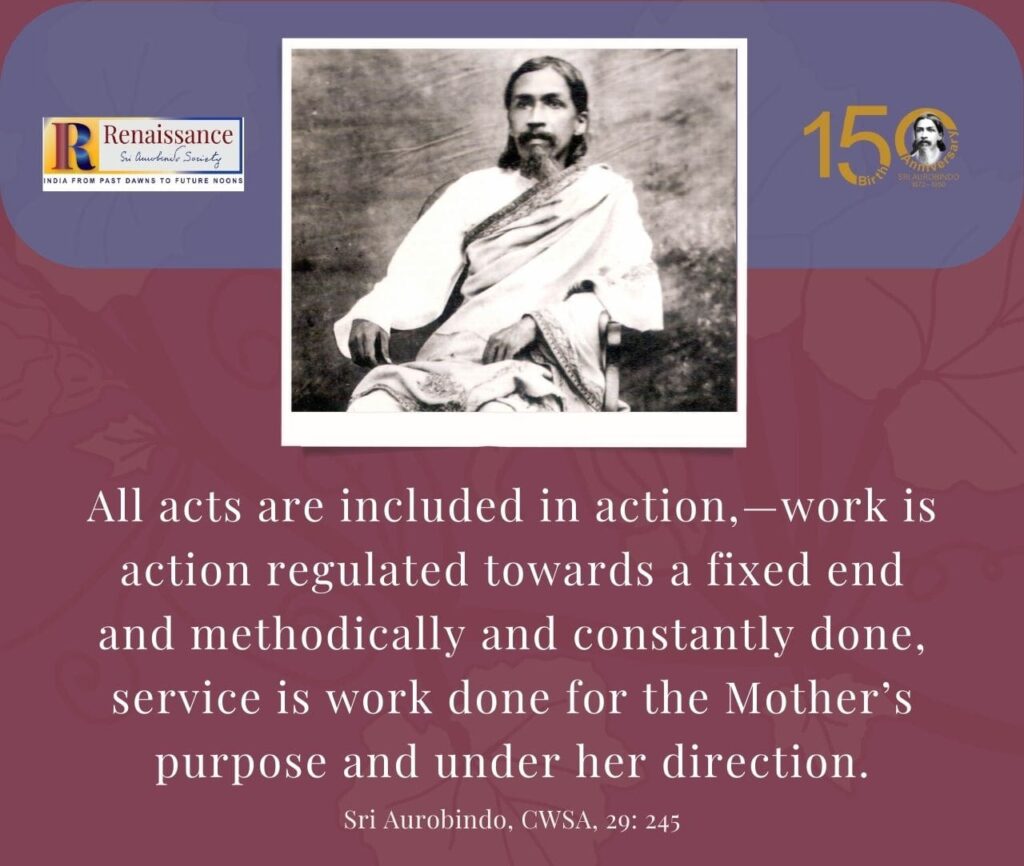
***
[. . .] it is not true that physical work is of an inferior value to mental culture, it is the arrogance of the intellect that makes the claim. All work done for the Divine is equally divine; manual labour done for the Divine is more divine than mental culture done for one’s own development, fame or mental satisfaction. [. . .]
***
Of course the idea of bigness and smallness is quite foreign to the spiritual truth. Spiritually there is nothing big or small.
Such ideas are like those of the literary people who think writing a poem is a high work and making shoes or cooking the dinner is a small and low one. But all is equal in the eyes of the Spirit—and it is only the spirit within with which it is done that matters. It is the same with a particular kind of work, there is nothing big or small.
***
In the wider consciousness one can deal with the small as well as the high things, but one comes to deal with them with a larger as well as a profounder, subtler and more accurate view coming from a more and more understanding and luminous consciousness so that the thoughts about small things also cease to be themselves small or trivial, being more and more part of a higher knowledge.
***
One must be able to do the same work always with enthusiasm and at the same time be ready to do something else or enlarge one’s scope at a moment’s notice.
***
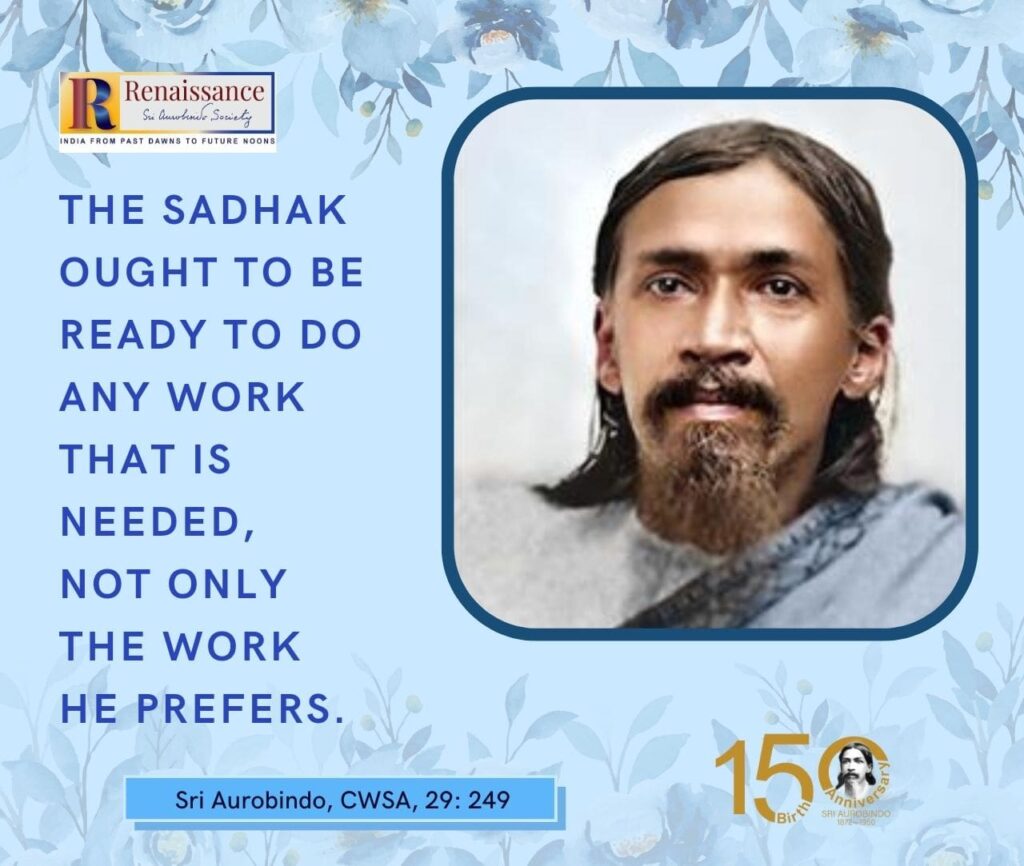
***
It is not that you have to do what you dislike, but that you have to cease to dislike. To do only what you like is to indulge the vital and maintain its domination over the nature—for that is the very principle of the untransformed nature, to be governed by its likes and dislikes.
To be able to do anything with equanimity is the principle of karmayoga and to do it with joy because it is done for the Mother is the true psychic and vital condition in this Yoga.
***
There are those who have done the lawyer’s work with the Mother’s force working in them and grown by it in inward consciousness. On the other hand religious work can be merely external and vital in its nature or influence.
***
I may say however that I do not regard business as something evil or tainted, any more than it was so regarded in ancient spiritual India. If I did, I would not be able to receive money from X or from those of our disciples who in Bombay trade with East Africa; nor could we then encourage them to go on with their work but would have to tell them to throw it up and attend to their spiritual progress alone.
How are we to reconcile X‘s seeking after spiritual light and his mill? Ought I not to tell him to leave his mill to itself and to the devil and go into some Ashram to meditate? Even if I myself had had the command to do business as I had the command to do politics I would have done it without the least spiritual or moral compunction. All depends on the spirit in which a thing is done, the principle on which it is built and use to which it is turned.
***
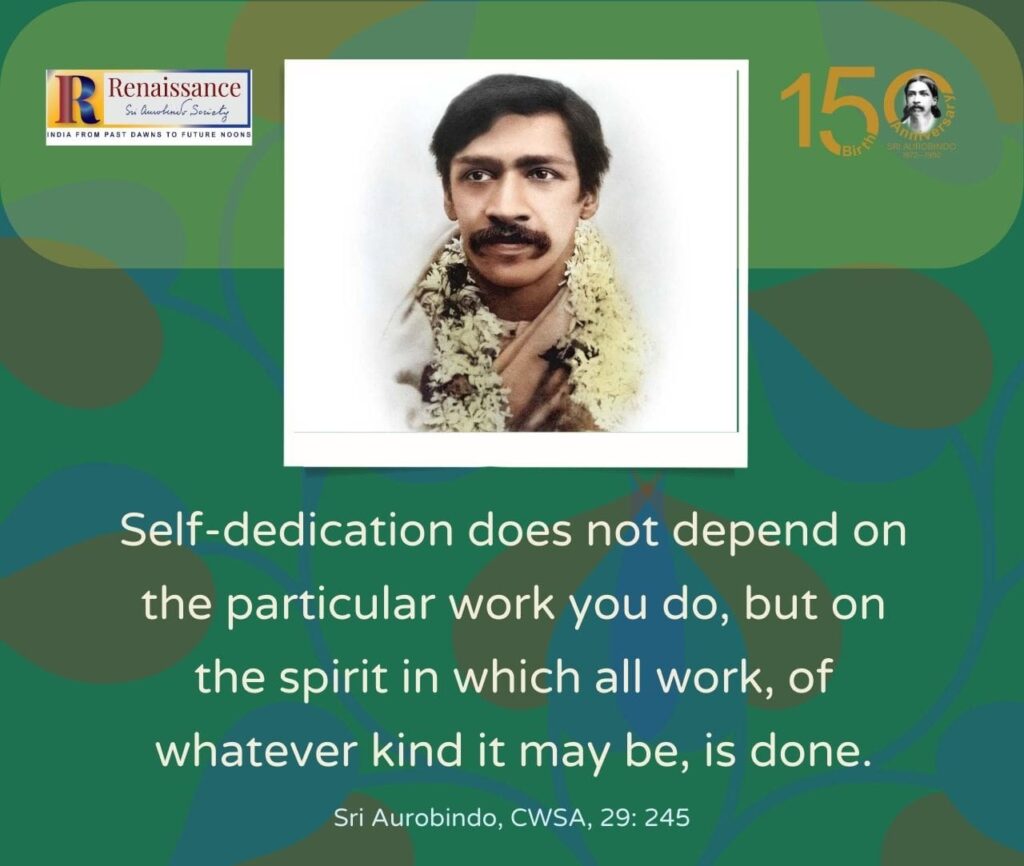
***
I have done politics and the most violent kind of revolutionary politics, ghoraṁ karma, and I have supported war and sent men to it, even though politics is not always or often a very clean occupation nor can war be called a spiritual line of action.
But Krishna calls upon Arjuna to carry on war of the most terrible kind and by his example encourage men to do every kind of human work, sarvakarmāṇi. Do you contend that Krishna was an unspiritual man and that his advice to Arjuna was mistaken or wrong in principle?
Krishna goes farther and declares that a man by doing in the right way and in the right spirit the work dictated to him by his fundamental nature, temperament and capacity and according to his and its dharma can move towards the Divine. He validates the function and dharma of the Vaishya as well as of the Brahmin and Kshatriya. It is in his view quite possible for a man to do business and make money and earn profits and yet be a spiritual man, practise Yoga, have an inner life.
The Gita is constantly justifying works as a means of spiritual salvation and enjoining a Yoga of works as well as of Bhakti and Knowledge. Krishna, however, superimposes a higher law also that work must be done without desire, without attachment to any fruit or reward, without any egoistic attitude or motive, as an offering or sacrifice to the Divine.
This is the traditional Indian attitude towards these things, that all work can be done if it is done according to the dharma and, if it is rightly done, it does not prevent the approach to the Divine or the access to spiritual knowledge and the spiritual life.
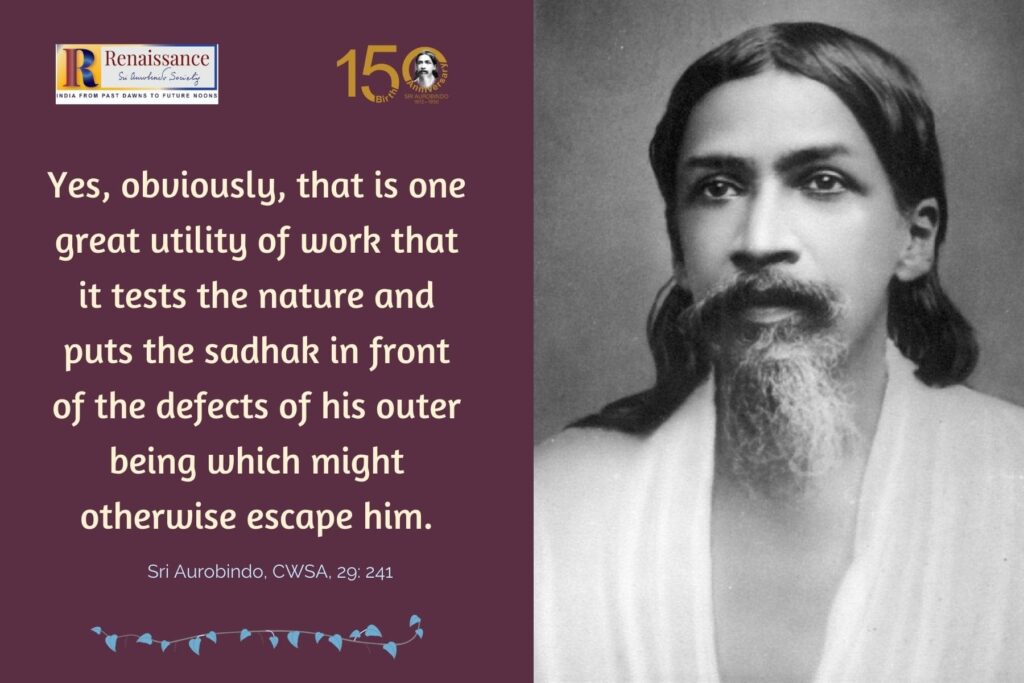
***
There is of course also the ascetic ideal which is necessary for many and has its place in the spiritual order. I would myself say that no man can be spiritually complete if he cannot live ascetically or follow a life as bare as the barest anchorite’s. Obviously, greed for wealth and money-making has to be absent from his nature as much as greed for food or any other greed and all attachment to these things must be renounced from his consciousness.
But I do not regard the ascetic way of living as indispensable to spiritual perfection or as identical with it.
There is the way of spiritual self-mastery and the way of spiritual self-giving and surrender to the Divine, abandoning ego and desire even in the midst of action or of any kind of work or all kinds of work demanded from us by the Divine.
If it were not so, there would not have been great spiritual men like Janaka or Vidura in India and even there would have been no Krishna or else Krishna would have been not the Lord of Brindavan and Mathura and Dwarka or a prince and warrior or the charioteer of Kurukshetra, but only one more great anchorite.
The Indian scriptures and Indian tradition, in the Mahabharata and elsewhere, make room both for the spirituality of the renunciation of life and for the spiritual life of action. One cannot say that one only is the Indian tradition and that the acceptance of life and works of all kinds, sarvakarmāṇi, is un-Indian, European or Western and unspiritual.
***
Also read:
Why Work and How to Work: Sri Aurobindo Guides
Interest in Work
It [absorption in work] depends on a certain extension and intensifying of the consciousness by which all activity becomes interesting not for itself but because of the consciousness put into it and, through the intensity of the energy, there is a pleasure in the exercise of the energy, and in the perfect doing of the work, whatever the work may be.
***
As a rule, I mean in their unchanged condition, the lower parts get interested and enthusiastic [about work] when the ego mixes with the interest. But the pure enthusiasm can come into them as they get more and more converted and purified and they then become very indispensable forces for the realisation.
***
It is natural for the vital or even the mind to feel energised by something new—but for the physical plane the work always repeated is the foundation—so one has to be able at least to take a steady calm interest in it always.
***
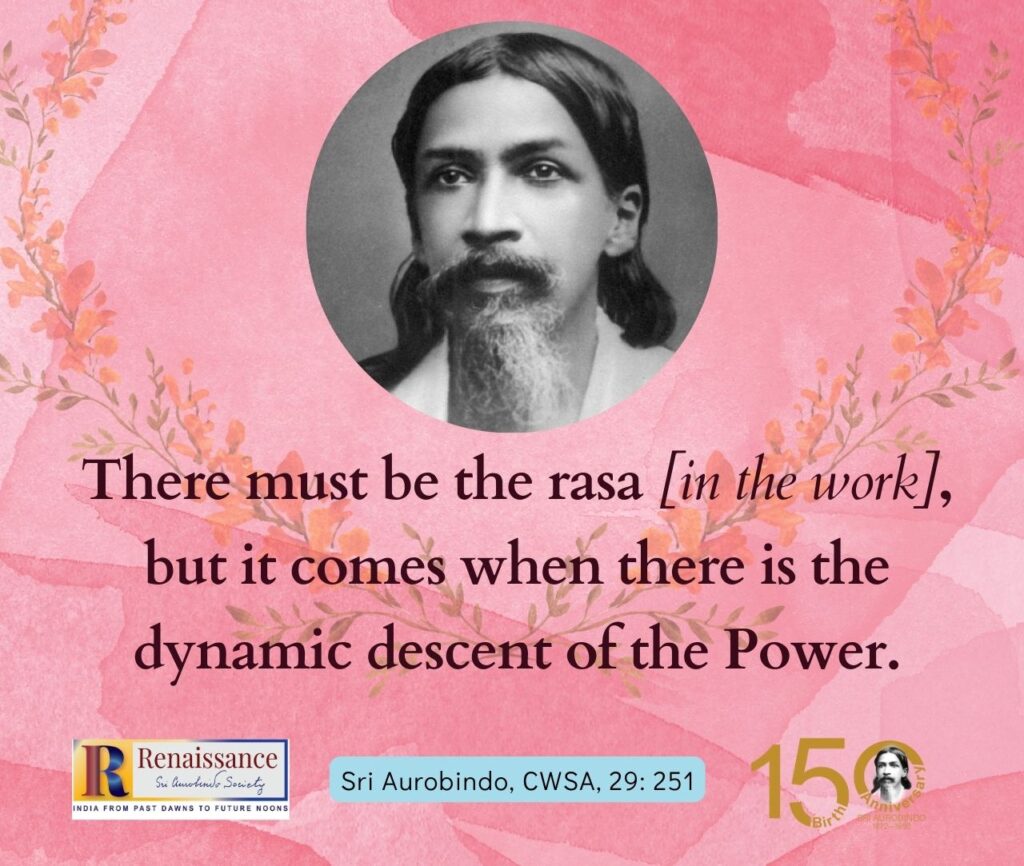
Joy in Work
Part of the physical cannot do without work, another part (more material) finds it an infliction. What gives the force and joy of the work is however not physical but vital.
***
The vital delight in the work is a necessary element for the work itself. Work done without it is much less easy to do and much less easy to offer.
***
Most people do things because they have to, not out of the happiness they find in the things. It is only its hobbies and penchants that the nature finds some happiness in, not usually in work—unless of course the work itself is one’s hobby or penchant and can be indulged in or dropped as one likes.
***
Joy and enthusiasm and buoyancy are good things, but it must be on a basis of calm and with the head clear for work.
***
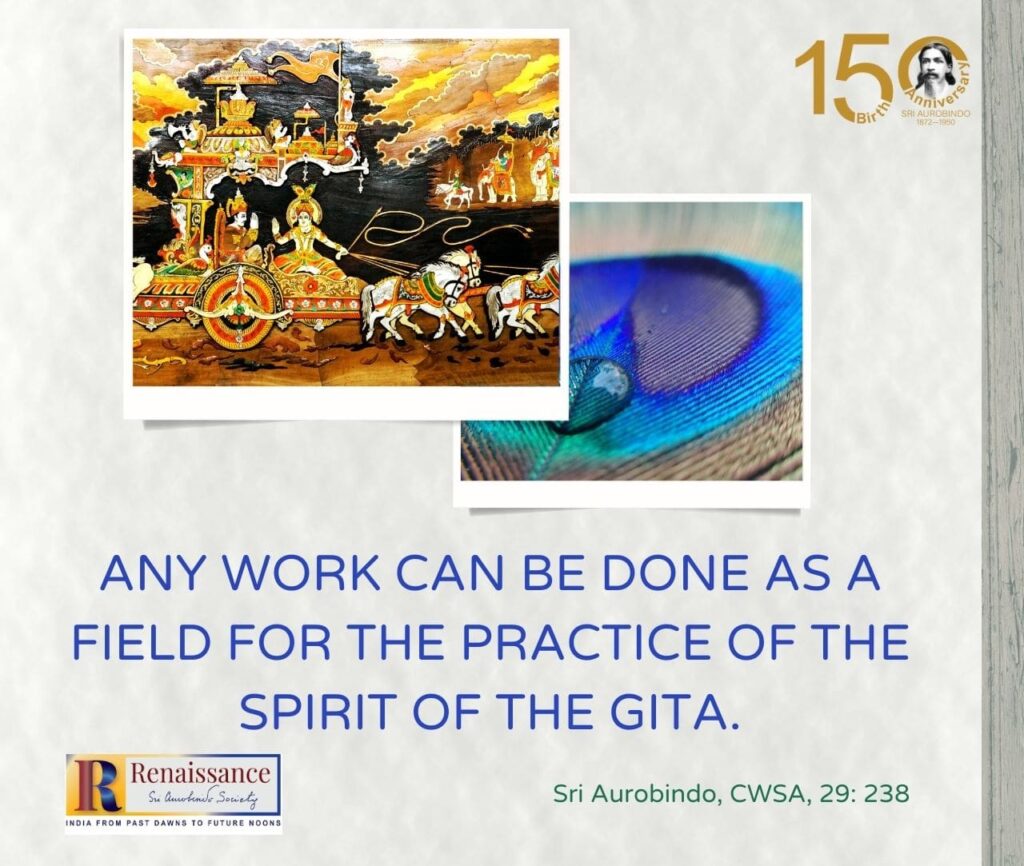
The reason of the difference of result between the two moods in work is that the first mood is that of a vital joy, while the other is that of a psychic quiet. Vital joy, though it is a very helpful thing for the ordinary human life, is something excited, eager, mobile without a settled basis—that is why it soon gets tired and cannot continue.
Vital joy has to be replaced by a quiet settled psychic gladness with the mind and vital very clear and very peaceful. When one works on this basis, then everything becomes glad and easy, in touch with the Mother’s force and fatigue or depression do not come.

~ Design: Beloo Mehra

